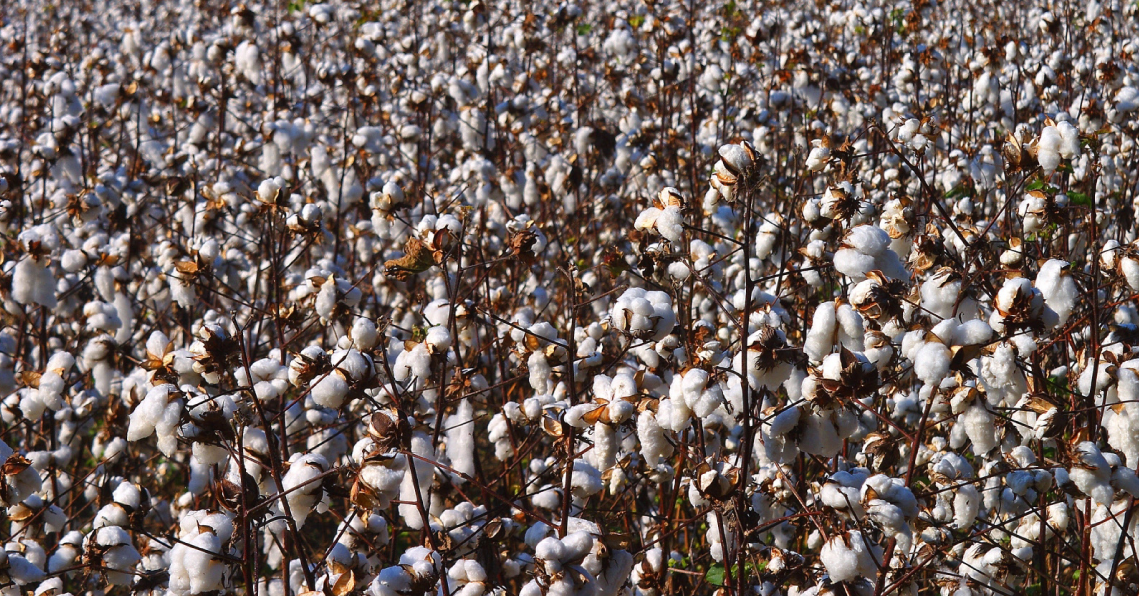Enzyme Treatment Replaces Conventional Scouring
Textile processing uses large amounts of water. Approximately 200 liters of fresh water are necessary for finishing 1 kg of textile fabric; accordingly, large amounts of waste water are produced. Many traditional finishing processes can be replaced by sustainable, environmentally friendly, biotechnological processes through the using of amylase, cellulase, laccase and pectinase. Environmentally friendly processes conserve vast amounts of water, energy, chemicals and textile auxiliaries.
The pretreatment of cotton serves to eliminate natural fiber components as well as remove sizes applied on the warp before weaving. The aim of the treatment is to achieve a good absorbency of the textiles and a high level of desizing. This is usually done in the following three steps:
- Desizing
Desizing is necessary to remove sizes from woven fabrics. - Alkaline Scouring
Alkaline Scouring is applied to remove natural substances, such as pectins, fats, waxes etc. from the fiber and to achieve good hydrophilic properties. - Bleaching
Bleaching is made to obtain a high degree of whiteness and to remove vegetable impurities.
These traditional processes require large amounts of caustic soda and textile auxiliaries. Furthermore, the alkali used must be subsequently neutralized.
Bioscouring with Pectinase instead of Application of Large Amounts of Alkali
In the bioscouring process, enzymes, also called biocatalysts, are used in combination with textile auxiliaries at mild pH conditions. Pectinases help to remove interfering fiber components from the cotton without the need for large amounts of alkali or high treatment temperatures. The pectin can easily be removed from the primary cell wall of the cotton fiber by enzymatic decomposition. Our multifunctional specialty products for bioscouring are compositions of enzymes, surfactants and wetting agents. These products are easy to use and offer high process safety.
PERIZYM BSN is a special enzyme composition for enzymatic pretreatment of cotton. It can be applied in discontinuous as well as in continuous processes without the use of large amounts of alkali.
PERIZYM DBS is a multifunctional product for the one-bath desizing and bioscouring of starch sized cotton fabric.
Bioscouring with PERIZYM DBS in a pad-batch process replaces the traditional process steps “Enzymatic Desizing“ and “Alkaline Scouring”. This results in the conservation of time, energy, fresh water and textile auxiliaries. With PERIZYM DBS you can achieve a good degree of desizing as well as high and uniform hydrophilicity of the cotton.
PERIZYM LOW is a multifunctional pretreatment agent for the bioscouring and bleaching of cotton yarns and knitwear in a one-bath-process.
For fabrics which are not sized (for example yarns or knitted fabrics), we recommend a discontinuous bioscouring with PERIZYM LOW. The pretreatment with PERIZYM LOW is carried out in a one-bath-two-step process in combination with a mild bleach. Compared to traditional peroxide bleaching, the COD and BOD in the waste water are reduced significantly. Cotton pretreated with PERIZYM LOW shows a very soft handle and a high absorbency.
LEAN Processes Provide Procedural Benefits
In addition to enzymatic processes with pectinases, amylases or cellulases, we recommend modern, sustainable LEAN Processes for many applications in textile finishing which provide advantages in process engineering. Compared to classical methods our LEAN Processes offer ecological and economic benefits.
Our LEAN Processes are characterized by:
- Less time
- Economical processes
- Advanced chemistry
- New technologies
Please Contact Us.

Apart from products which are optimally adapted to the requirements for textile pretreatment, we also offer professional application consulting. Our specialists have many years of practical experience in pretreatment, dyeing and printing.
If you are interested in using our products for bioscouring, please contact our experts. Send an e-mail to contact@drpetry.de or use our online contact form.
- Ulrike Beurer
- Application technology
- +49 7121 9589-35
- ulrike.beurer@drpetry.de


